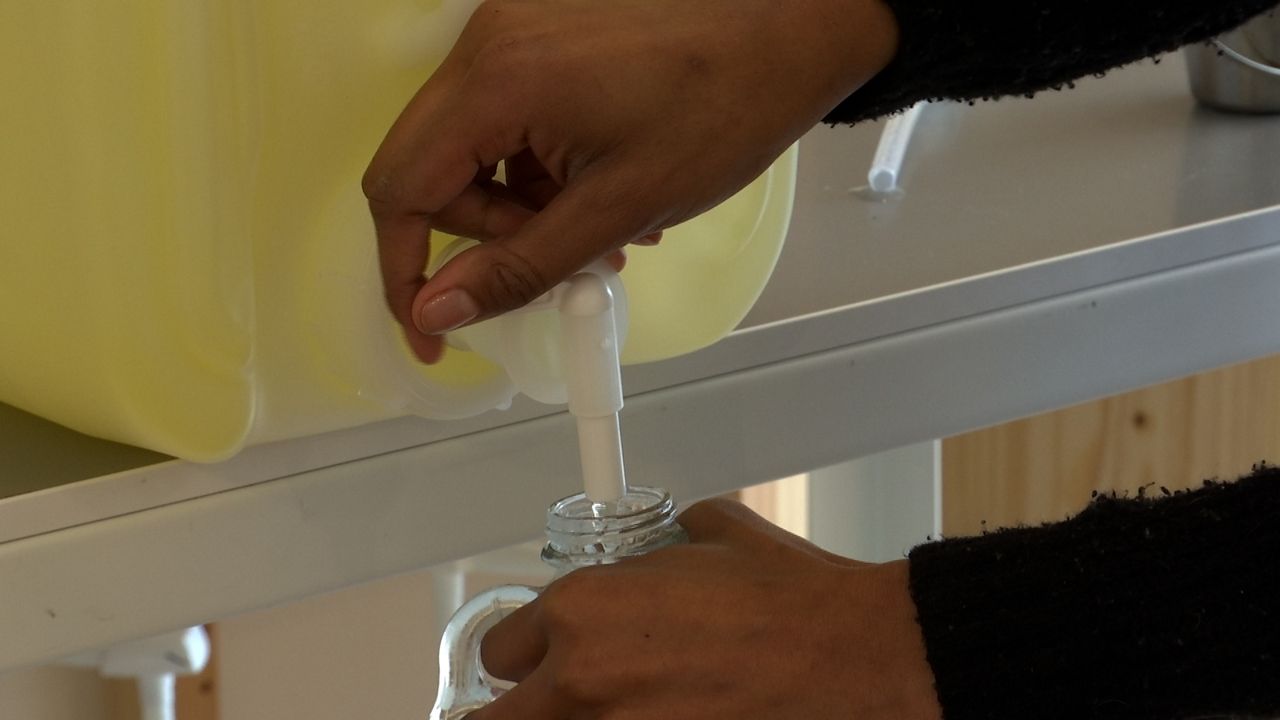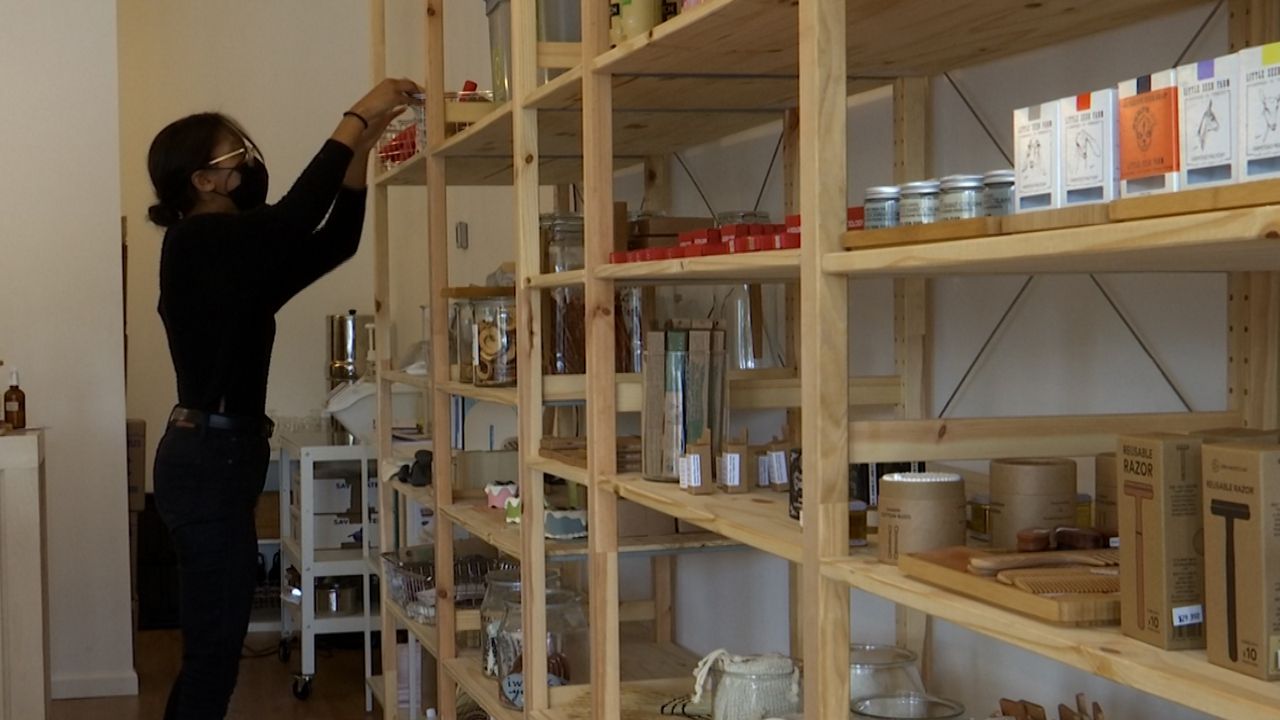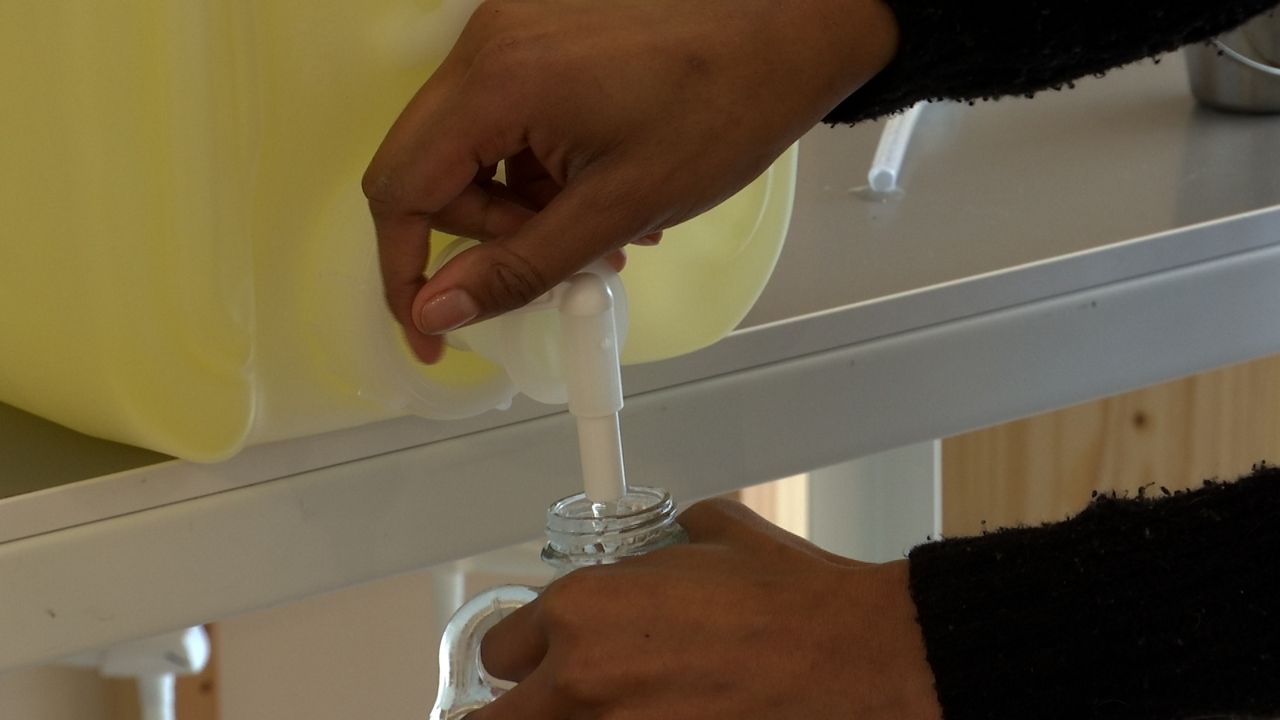CINCINNATI — Between single-use masks, takeout containers and bubble wrap for online shoppers, 2020 brought the world’s already high plastic consumption to new heights.
Plastic production has increased by 60 million metric tonnes over the past five years, according to the National Institute of Oceanography. With the pandemic making it harder than ever to reduce, reuse and recycle, it’s harder than ever to keep the plastic from piling up.
It’s an issue that’s bothered Gabrielle Lauren for a while, so she started looking for ways to help.
“I kind of gravitated toward a zero-waste lifestyle a couple years back and kind of found that there weren’t any resources for me to utilize around the city,” she said.

That’s when Lauren decided to open a place of her own, Fill More Waste Less. The idea was that you she would supply everyday staples like shampoo, dish soap and laundry detergent in large quantities and customers would come in with their own jars or containers to buy what they need.
“We can kind of buy them in these bulk amounts even in some cases to send these containers back to them to be filled,” she said.
Customers can bring in whatever they want to refill as long as it’s empty and dry.
Lauren has a scale at the front of her store were she tares out the weight of that container then fills it with whatever they want and charges customers for every ounce.
Through the entire transaction, use and reuse, not a single ounce of plastic or even paper ends up in a landfill.
“We kind of make it attainable that you can just have little small steps that over time make a pretty big change,” Lauren said.
She started out as a pop-up business in 2018, eventually growing to the point she could get her own storefront in Cincinnati’s Madisonville neighborhood in late 2020.

Around the same time, the world was learning just how much the year’s consumption had piled up.
The demand for plastic was at an all-time high while plastic recycling was growing less and less cost effective. Only 9% of plastic produced between 1950 and 2015 has ever been recycled. Even now, recycling plastic costs between 83% and 93% less than making new material, making the process less and less cost effective.
The best way to curb plastic pollution is to use less but due to the pandemic, many conservation choices were out of consumers’ hands in the name of keeping things safe and sanitized.
Many stores banned reusable bags and products that used to go unwrapped often got at least one layer of packaging.
“All of the bulk items that you used to be able to get in your own jars, they don’t allow you to bring your own jars anymore,” Lauren said of many grocery stores in the area.

Lauren restocks the shelves at Fill More Waste Less
Despite the trend, Lauren kept her store running on the refill model and she said people have been slowly finding safe ways to return to the habit.
In April, the Centers for Disease Control and Prevention announced the risk of catching COVID-19 from surface contamination was low but continued to recommend frequent sanitation of common touch points.
This is why Lauren said she usually takes care of the refilling, and all of her products are filled by pumping, scooping or gravity — not by hand. When the refillable jars and bags are passed from person to person, she sees little threat as long as they’re clean, though she continues to wipe down her counters, tables and scales daily.

With this in mind, she hopes anyone looking to cut down on waste sees this as an option again.
“I think people are curious about it which I guess is like the very first step in making all of this change,” she said.
Lauren wants her store to serve as a gateway helping others foster some sustainable habits and see how attainable a low-waste lifestyle can be.




